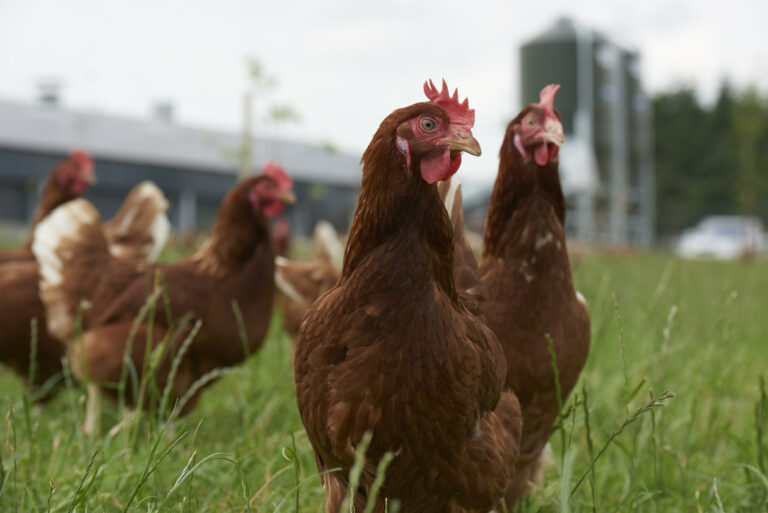A new report has outlined the poultry industry’s good work in reducing antibiotic usage since 2012. By Michael Barker
The poultry industry’s huge strides in reducing antibiotic use over the past decade have been outlined in a new report – alongside a warning that their responsible use remains critical to ensuring bird health and welfare in the years ahead.
The British Poultry Council released its Antibiotic Stewardship Report 2023 at the start of September, detailing the industry’s performance since the Stewardship was set up in 2011 as a strategy for the responsible use of antibiotics in the UK poultry meat sector.
The approach has achieved some impressive results: since 2012, member businesses have achieved a sizeable 79.5% reduction in total antibiotic use, and an even more impressive 98.7% reduction in critically important antibiotics.
Despite these successes, the BPC stresses that farmers and veterinarians need antibiotics in their toolbox to protect the health and welfare of birds, underlining that the responsible use of antibiotics is about “so much more than just reduction targets”. There is no ultimate aim to eliminate all antibiotics, and indeed BPC states that zero use is neither ethical nor sustainable as it “goes against a farmer’s duty of care to address any health and welfare issues”.
The poultry sector has been measuring itself against targets established by the RUMA (Responsible Use of Medicines in Agriculture Alliance) Targets Task Force, and the latest figures indicate that the BPC membership is continuing to remain under target. In chickens, antibiotic use is currently 14.05mg/pcu – well under the RUMA target of 25 mg/pcu. In turkeys, the current figure is 41.07 mg/pcu, again comfortably inside the RUMA target of 50 mg/pcu. In both cases, that’s a huge reduction in antibiotic use from the 48.75 mg/pcu and 219.51 mg/pcu recorded in chickens and turkeys respectively back in 2014.
In ducks, the figure for 2022 is just 0.29 mg/pcu – down from 15.11 in 2011 – although no target has been set for the species.
Looking in more detail at the use of critically important antibiotics (CIAs), the report notes that BPC Antibiotic Stewardship follows World Health Organisation guidelines, adding that the UK poultry meat industry uses the highest priority CIAs only as a “last resort”. No preventative treatments are administered.
Macrolides and fluoroquinolones are only prescribed by the supervising vet following a detailed investigation into the causal problem and after alternative options for treatment have been explored, the report states. No fluoroquinolones were used in chickens in 2022, but a single breeder flock and some meat turkeys were treated on the advice of veterinary surgeons following full investigations, including antimicrobial sensitivity testing.
Macrolides were prescribed as a last resort under the direction of vets to treat a specific bacterial infection that posed a risk to bird welfare.
BPC chief executive Richard Griffiths said: “The safe and responsible use of antibiotics has been prioritised by the poultry meat industry since 2011. Our BPC Antibiotic Stewardship has seen routine preventative application stopped and overall antibiotic use decrease by nearly 80%.
“A billion birds a year are reared for food in this country and our farmers have a duty of care to every single one. Part of that duty of care includes working with professional veterinarians to safeguard bird health and wellbeing by ensuring the sustainability of our antibiotics. Whilst it is important that we continue to challenge antibiotic use levels and strive for further reduction, it is crucial birdkeepers treat their birds under strict veterinary direction if required to ensure the health and welfare of their livestock is not compromised.
“The BPC Antibiotic Stewardship has taken the lead in understanding use and impact, and is committed to maintaining an open and honest dialogue by sharing best practice experience across the sector. The Stewardship recognises that sharing information in a non-competitive forum is key to not only reducing overall antibiotic usage but also preserving the effectiveness of the limited number of antibiotic licenced for use in poultry species.
“Preserving the effectiveness of antibiotics is critical to the long-term sustainability of the industry. As new alternate management practices and therapies come to market, these will be critically assessed, and the benefits and experiences gained shared across the sector. We believe this is the key to unlocking continuous improvement.”


